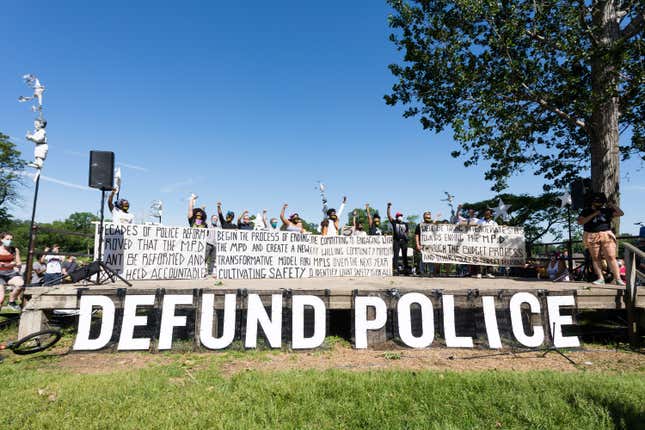
The death of George Floyd while in the custody of Minneapolis police officers has transformed the city into one of the epicenters of the current movement surrounding racial justice and police reform. In a notable step forward, the Minneapolis City Council has voted to shift millions of dollars away from the police budget.
According to KTSP, the city’s budget for 2021 will see the police budget reduced by nearly $8 million, with that money set to go to social services under the “Safety For All” plan. The money will be redistributed towards programs that help with violence prevention and mental health, and will also be used to create a system that will see crisis intervention specialists respond to certain emergencies.
While the budget was passed through unanimous vote, it faced many obstacles on its path to approval. Mayor Jacob Frey threatened to veto the budget if it permanently reduced the number of officers that could be hired. Frey’s position is that it’s possible to reform the police force without having to drastically reduce it’s numbers. He appears to be in favor of the budget that the council approved, calling it a “defining moment for the city.”
“We all share a deep and abiding reverence for the role our local government plays in service of the people of our city,” Frey said in a statement. “And today, there are good reasons to be optimistic about the future in Minneapolis.”
According to the Washington Post, the city is also in the midst of a surge in violent crime. In the six months since George Floyd was violently killed by a group of Minneapolis police officers, homicides have seen an increase of 50 percent. Over 500 people have been shot so far, which is both double the number of shooting victims in 2019 and the highest number of shootings the city has seen in over a decade.
This crime surge comes as waves of police officers have been quitting the force. Police Chief Medaria Arradondo told the Post that over 150 officers have left the force this year; double the usual rate. While some of these departures included retirements, Arradondo said that some of the officers have quit due to post-traumatic stress stemming from the protests that arose after Floyd’s death.
During a City Council session on Wednesday night, the public was allowed to share their feelings before they voted. Some were in favor of the cuts, saying that blame for the city’s current situation falls squarely on the Minneapolis police department.
“The place I grew up this summer burned and it burned because of police misconduct,” Will Roberts, a Minneapolis resident told the council during the meeting. He called the Minneapolis police department a “violent, occupying force [sic],” adding that “it’s incumbent upon us as residents of this city to change that.”
Doug Tanner, a south Minneapolis resident whose wife was carjacked and assaulted, didn’t understand why the council wanted to reduce police resources at a time where violent crime is plaguing the city.
“The fact that this council does not even acknowledge there is a problem is irresponsible,” Tanner told the council. “The crime rate is at an all-time high, and you want less cops on the street. Where does common sense come into the equation?”
Council Member Steve Fletcher feels that the solutions presented in the bill, such as redirecting certain 911 calls to mental health specialists, means that any potential reduction in police will be offset by an overall reduction in the police workload.
“I think we need to make bold decisions on a path forward,” Fletcher told KTSP. “We cannot afford to remain stuck in the past any longer.”

